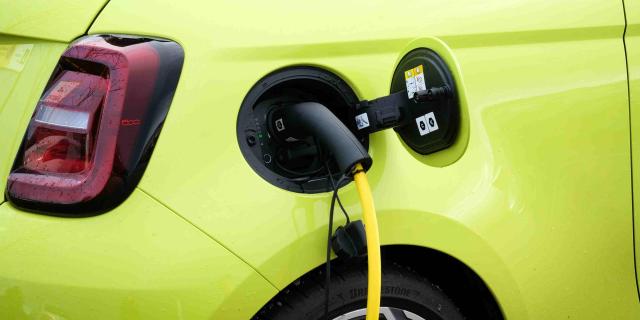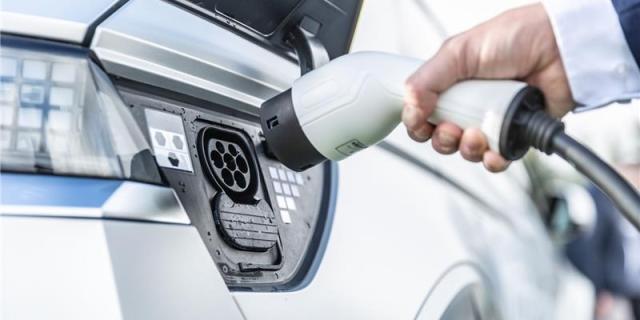Nearly 8 in every 10 company cars ordered from mobility solutions expert Arval Belgium during the first half of 2024 will be 100% electrically powered. The smaller the company car, the more often companies still opt for a petrol, hybrid or plug-in vehicle, even though these have become less attractive from a tax perspective since mid-2023. The most popular company car is a compact SUV, the Volvo EX30. “For smaller models, the cost of the battery carries a proportionally bigger weight than in the higher segments. This is one of the reasons why Belgian companies in the lower segments also continue to choose petrol cars or hybrids, as well as showing a distinct preference for established European (premium) car makes,” Yves Ceurstemont, Head of Arval Mobility Observatory Belgium, explains.
Over 77% of all new company cars ordered from Arval Belgium in the first half of the year are 100% electrically powered. Around 12% of orders have a smaller battery, supporting the combustion engine as a hybrid (3.3%) or as a plug-in hybrid (8.7%). In some 9% of orders, the corporate sector opts for a petrol car, barely 1.5% still opt for a diesel engine in 2024.
“Compared to the last half of 2023, the picture we are seeing in terms of general ordering behaviour among Belgian companies is very stable, with the exception of some 2 percentage points more PHEVs during the first half of this year, to the detriment of the number of pure petrol vehicles ordered. The shift towards electrified driving and especially all-electric driving due to the tax changes in the middle of last year is an undeniable fact.”
- Yves Ceurstemont, Head of Arval Mobility Observatory Belgium
The smaller the company car, the less likely it is all-electric
However, an in-depth segment analysis shows differences as the budget for the company car increases. Among the smallest company cars, some 85% still run solely on petrol. In the two categories above this level, i.e. the more compact cars which account for almost half of all orders, some 62.5% are fully electric. Which means that, in nearly 4 in 10 cases, companies continue to opt for petrol, hybrid or plug-in hybrid vehicles. By contrast, as good as all mid-size and larger company cars, which also represent nearly half of all orders placed, have a plug, of which more than 90% are BEVs, or all-electric. In the very top segment - for which we get very few orders - the ratio of fully electric to other powertrains is 50-50.
“The purchase value of the same vehicle with a petrol or hybrid drive versus a fully electric version is still far apart in the smaller segments. The battery cost plays a major role in this for the various car makers. This explains why, given the total cost of ownership (TCO), businesses still quite often opt for vehicles with a petrol or petrol hybrid drive in these categories. The manufacturers have frequently announced more budget-friendly, smaller fully electric vehicles, but these have been delayed just as often as they have been announced. As a result, there is a divergence between Belgium's strict tax regime that penalises non-BEVs and the current offering by manufacturers who operate in a global market. In addition, on a global level, the BEV market finds itself in a context of uncertainty, with the result that some automotive groups are now even revising their long-term strategy thereby slowing down the development of smaller BEVs. Moreover, Belgian companies are also somewhat attached to their time-honoured favourites such as the big name premium makes or American car maker Tesla, as seen in the top 10 which does not include a single 100% Chinese player. Belgian companies are a little caught between a rock and a hard place for the smaller segments, which explains the BEVs’ failure to continue to break through in the smaller segments.”
- Yves Ceurstemont, Head of Arval Mobility Observatory Belgium
Three BMWs in top 10 orders, but Volvo EX30 takes the top spot
The most popular company car at Arval Belgium? That would be the Volvo EX30, a compact SUV, which - same as the rest of the entire top 10 for the first half of 2024 - is 100% electrically powered. The Tesla Model Y - the best-selling electric car worldwide in 2023 - takes second place, with the BMW iX1 rounding out the top 3. However, the German brand is best represented in the orders we are getting in, with 2 more models in the top 10: the sporty SUV iX2 and the i4 sedan.
| Ranking of most ordered company cars first half of 2024 | Model | Ranking of most ordered company cars second half of 2023 |
|---|---|---|
| 1 | Volvo EX30 | 3 |
| 2 | Tesla Model Y | 2 |
| 3 | BMW iX1 | 1 |
| 4 | Mercedes-Benz EQB | 10 |
| 5 | Skoda Enyaq | 7 |
| 6 | Volkswagen iD.4 | 4 |
| 7 | Tesla Model 3 | 9 |
| 8 | BMW iX2 | New |
| 9 | BMW i4 | 6 |
| 10 | Mercedes-Benz EQA | 12 |
“The popularity of the Volvo EX30 is very striking as this is a vehicle from the smaller second segment. This car, the only premium in this smaller segment, accounts for 7 out of 10 orders for BEVs in that segment. The smallest BEV models of the three well-known German competitors are all in a higher segment. An additional explanation could also be employees’ individual decision to go for a smaller, but still premium company car coupled with a mobility budget. A third reason that might help explain things is the local presence of the Volvo brand. Especially with the EX30 set to roll off the assembly line in Ghent as from next year.”
- Yves Ceurstemont, Head of Arval Mobility Observatory Belgium




